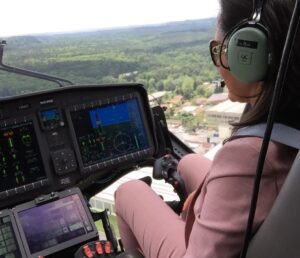
A future pilot shortage demands new recruitment strategies
“The high cost of pilot training and several years of earlier hiring freezes in markets like the United States and Australia have deterred potential aviators from entering an industry that Boeing says will need 637,000 more pilots over the next 20 years.” Reuters.com 6/6 2018
Present recruiting challenge – a paradox
As a previous recruiter I have noticed how difficult it was to find qualified pilots in recruitment-times but on the other hand we would receive numerous unsolicited applications when we didn’t need to employ. If a contract was secured finding the qualified pilots in time normally proved more difficult than expected.
Many pilots and recruiters spend a lot of time trying to find each other, which we can do better in a digital age.
The current way we recruit pilots therefore seems obsolete, perhaps the predicted pilot shortage is slowly showing its effect.
Professional pilots/recruiters- do you experience problems in the current traditional way of recruiting?
Aviation job market shift
As a pilot recruiter/manager and experienced professional pilot I see the need for a change in the way we recruit pilots. We as an industry should rethink the strategy of aviation employment, the shift will be more apparent in the coming years. In time a potential pilot shortage will even jeopardize safety if we turn a blind eye.
Predictions and global pilot job trends
Many predictions concerning pilot shortage have been published lately; this will affect the job market for future pilots. Turn it upside down so to speak.
Companies will have to rethink their strategy for recruiting pilots in the long term to fill their cockpits. Until now the operators and the employers of pilots have had the ability to pick and choose, but when the pilot shortage becomes a reality then the table is going to turn.
Pilots with extensive qualifications will be in short supply and inevitably attracting the attention of numerous employing companies worldwide – constantly. The general pilot wage will adjust itself to the demand and freelance job opportunities will be a normal part of a pilot career as we see in many other industries, e.g. TECH/ IT.
The race for better opportunities
Pilots will tend to opt in and out of the best opportunities from a personal career perspective, which will lead to more frequent job changes chasing better conditions, benefits and career opportunities. Employers will have to adapt their HR policies and strategies to fit the new environment preferably beforehand.
Adapted and attractive recruitments policies will ensure companies can source the needed and qualified pilots in the future where less manpower will be available.
High safety levels can be maintained with proactive thinking
Safety could be at risk if pilot numbers are too low for a future market demand. The industry must be prepared in order to maintain the current high safety standards. Hence various education facilities and training centers, plus ATO’s/pilot schools should look to adapt and keep up with increased demands for more pilots in the future.
“But there aren’t enough of them to fill our cockpits and maintenance hangars. We need to learn how to actively go out and find our workforce — and we need to ensure that the industry offers attractive, rewarding careers.” –Zuccaro Rotor.org Spring 2018
Airlines and other operators will have to rethink their recruitment strategy from reactive towards a more proactive view on employing pilots and other aircrew. The aviation industry is already in some place teaming up with universities. First Helicopter Degree Graduates
Perhaps airlines and operators need to look at how to reach out to the potential future pilot candidates even pre-training, like some already do, hereby increasing awareness of the industry and sparking motivation in young future pilots. Adapting and improving the possibilities for commercial pilots will inspire more to join aviation.
The aviation job market is already changing, the questions are:
Pilots; are you actively optimizing your career opportunities following the changes?
Recruiters; are you preparing in advance for a pilot shortage by adjusting your recruitment strategy?
